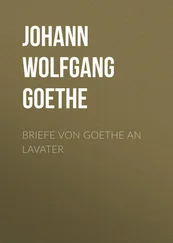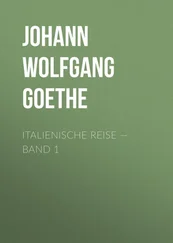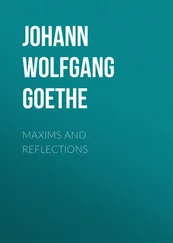Johann von Goethe - Letters from Switzerland and Travels in Italy
Здесь есть возможность читать онлайн «Johann von Goethe - Letters from Switzerland and Travels in Italy» — ознакомительный отрывок электронной книги совершенно бесплатно, а после прочтения отрывка купить полную версию. В некоторых случаях можно слушать аудио, скачать через торрент в формате fb2 и присутствует краткое содержание. Жанр: foreign_antique, foreign_prose, на английском языке. Описание произведения, (предисловие) а так же отзывы посетителей доступны на портале библиотеки ЛибКат.
- Название:Letters from Switzerland and Travels in Italy
- Автор:
- Жанр:
- Год:неизвестен
- ISBN:нет данных
- Рейтинг книги:4 / 5. Голосов: 1
-
Избранное:Добавить в избранное
- Отзывы:
-
Ваша оценка:
- 80
- 1
- 2
- 3
- 4
- 5
Letters from Switzerland and Travels in Italy: краткое содержание, описание и аннотация
Предлагаем к чтению аннотацию, описание, краткое содержание или предисловие (зависит от того, что написал сам автор книги «Letters from Switzerland and Travels in Italy»). Если вы не нашли необходимую информацию о книге — напишите в комментариях, мы постараемся отыскать её.
Letters from Switzerland and Travels in Italy — читать онлайн ознакомительный отрывок
Ниже представлен текст книги, разбитый по страницам. Система сохранения места последней прочитанной страницы, позволяет с удобством читать онлайн бесплатно книгу «Letters from Switzerland and Travels in Italy», без необходимости каждый раз заново искать на чём Вы остановились. Поставьте закладку, и сможете в любой момент перейти на страницу, на которой закончили чтение.
Интервал:
Закладка:
We now proceeded at a shorter pace, and after travelling about three leagues and a-half from the Cross, we saw the scattered roofs of Realp. We had several times questioned our guides as to what sort of an inn, and what kind of wine we were likely to find in Realp. The hopes they gave us were anything but good, but they assured us that the Capuchins there, although they had not, like those on the summit of S. Gotthard, an hospice, were in the habit of entertaining strangers. With them we should get some good red wine, and better food than at an inn. We therefore sent one of our party forwards to inform the Capuchins of our arrival, and to procure a lodging for us. We did not loiter long behind, and arrived very soon after him, when we were received at the door by one of the fathers – a portly, good-looking man. With much friendliness of manner he invited us to enter, and at the threshold begged that we would put up with such entertainment they could alone offer, as at no time and least of all at this season of the year, were they prepared to receive such guests. He therefore led us into a warm room, and was very diligent in waiting upon us, while we took off our boots, and changed our linen. He begged us once for all to make ourselves perfectly at home. As to our meat, we must, he said, be indulgent, for they were in the middle of their long fast, which would last till Christmas-day. We assured him that a warm room, a bit of bread, and a glass of red wine would, in our present circumstances, fully satisfy all our wishes. He procured us what we asked for, and we had scarcely refreshed ourselves a little, ere he began to recount to us all that concerned the establishment, and the settlement of himself and fellows on this waste spot. "We have not," he said, "an hospice like the fathers on Mont S. Gotthard, – we are here in the capacity of parish priests, and there are three of us. The duty of preaching falls to my lot; the second father has to look after the school, and the brother to look after the household." He went on to describe their hardships and toils; here, at the furthest end of a lonely valley, separated from all the world, and working hard to very little profit. This spot, like all others, was formerly provided with a secular priest, but an avalanche having buried half of the village, the last one had run away, and taken the pix with him, whereupon he was suspended, and they, of whom more resignation was expected, were sent there in his place.
In order to write all this I had retired to an upper room, which is warmed from below by a hole in the floor; and I have just received an intimation that dinner is ready, which, notwithstanding our luncheon, is right welcome news.
About 9.
The fathers, priests, servants, guides and all, took their dinner together at a common table; the brother, however, who superintended the cooking, did not make his appearance till dinner was nearly over. Out of milk, eggs, and flour he had compounded a variety of dishes, which we tasted one after another, and found them all very good. Our guides, who took a great pleasure in speaking of the successful issue of our expedition, praised us for our uncommon dexterity in travelling, and assured us that it was not every one that they would have undertaken the task of being guides to. They even confessed also that this morning, when their services were required, one had gone first to reconnoitre, and to see if we looked like people who would really go through all difficulties with them; for they were particularly cautious how they accompanied old or weak people at this time of the year, since it was their duty to take over in safety every one they had once engaged to guide, being bound in case of his falling sick, to carry him, even though it should be at the imminent risk of their own lives, and if he were to die on the passage, not to leave his body behind. This confession at once opened the flood-gates to a host of anecdotes, and each in turn had his story to tell of the difficulties and dangers of wandering over the mountains amidst which the people had here to live as in their proper element, so that with the greatest indifference they speak of mischances and accidents to which they themselves are daily liable. One of them told a story of how, on the Candersteg, on his way to Mount Gemmi, he and a comrade with him (he is mentioned on every occasion with both Christian and surname) found a poor family in the deep snow, the mother dying, her boy half dead, and the father in that state of indifference which verges on a total prostration of intellect. He took the woman on his back, and his comrade her son, and thus laden, they had driven before them the father, who was unwilling to move from the spot.
The Capuchins at Realp
During the descent of Gemmi the woman died on his back, but he brought her dead as she was to Leukerbad. When we asked what sort of people they were, and what could have brought them at such a season into the mountains, he said they were poor people of the canton of Berne, who, driven by want, had taken to the road at an unseasonable period of the year, in the hope of finding some relations either in Valais or the Italian canton, and had been overtaken by a snow-storm. Moreover, they told many anecdotes of what had happened to themselves during the winter journeys over the Furca with the chamois-skins, on which expeditions, however, they always travelled in companies. Every now and then our reverend host would make excuses for the dinner, and we redoubled our assurances that we wished for nothing better. We also found that he contrived to bring back the conversation to himself and his own matters, observing that he had not been long in this place. He began to talk of the office of preaching, and of the dexterity that a preacher ought to have. He compared the good preacher to a chapman who cleverly puffs his wares, and by his pleasant words makes himself agreeable to his customers. After dinner he kept up the conversation, and, as he stood with his left hand leaning on the table, he accompanied his remarks with his right, and while he discoursed most eloquently on eloquence, appeared at the moment as if he wished to convince us that he himself was the dexterous chapman. We assented to his observations, and he came from the lecture to the thing itself. He panegyrized the Roman Catholic religion. "We must," he said, "have a rule of faith; and the great value of it consists in its being fixed, and as little liable as possible to change, We," he said, "had made Scripture the foundation of our faith, but it was insufficient. We ourselves would not venture to put it into the hands of common men: for holy as it is, and full as every leaf is of the Spirit of God, still the worldly-minded man is insensible of all this, and finds rather perplexities and stumbling-blocks throughout. What good can a mere layman extract from the histories of sinful men, which are contained therein, and which the Holy Ghost has there recorded for the strengthening of the faith of the tried and experienced children of God? What benefit can a common man draw from all this, when he is unable to consider the whole context and connection? How is such a person to see his way clear out of the seeming contradictions which occasionally occur? – out of the difficulties which arise from the ill arrangement of the books, and the differences of style, when the learned themselves find it so hard, and while so many passages make them hold their reason in abeyance? What ought we therefore to teach? A rule of faith founded on Scripture, and proved by the best of commentaries? But who then is to comment upon the Scripture? Who is to set up this rule? I, perhaps, or some other man? By no means. Every man has his own way of taking and seeing things, and represents them after his own ideas. That would be to give to the people as many systems of doctrines as there are are heads in the world, and to produce inexplicable confusion as indeed had already been done. No, it remains for the Holy Church alone to interpret Scripture to determine the rule of faith by which the souls of men are to be guided and governed. And what is the church? It is not any single supreme head, or any particular member alone. No! it is all the holiest, most learned, and most experienced men of all times, who, with the co-operation of the Holy Spirit, have successively combined together in building up that great, universal, and agreeing body, which has its great councils for its members to communicate their thoughts to one another, and for mutual edification; which banishes error, and thereby imparts to our holy religion a certainty and a stability such as no other profession can pretend to, and gives it a foundation and strengthens it with bulwarks which even hell itself cannot overthrow. And just so is it also with the text of the sacred scriptures. We have," he said, "the Vulgate, moreover an approved version of the Vulgate, and of every sentence a commentary which the church itself has accredited. Hence arises that uniformity of our teaching which surprises every one. Whether," he continued, "you hear me preaching in this most remote corner of the world, or in the great capital of a distant country are listening to the dullest or cleverest of preachers, all will hold one and the same language; a Catholic Christian will always hear the same doctrine; everywhere will he be instructed and edified in the same manner. And this it is which constitutes the certainty of our faith; which gives us the peace and confidence by which each one in life holds sure communion with his brother Catholics, and at death can calmly part in the sure hope of meeting one another again."
Читать дальшеИнтервал:
Закладка:
Похожие книги на «Letters from Switzerland and Travels in Italy»
Представляем Вашему вниманию похожие книги на «Letters from Switzerland and Travels in Italy» списком для выбора. Мы отобрали схожую по названию и смыслу литературу в надежде предоставить читателям больше вариантов отыскать новые, интересные, ещё непрочитанные произведения.
Обсуждение, отзывы о книге «Letters from Switzerland and Travels in Italy» и просто собственные мнения читателей. Оставьте ваши комментарии, напишите, что Вы думаете о произведении, его смысле или главных героях. Укажите что конкретно понравилось, а что нет, и почему Вы так считаете.












